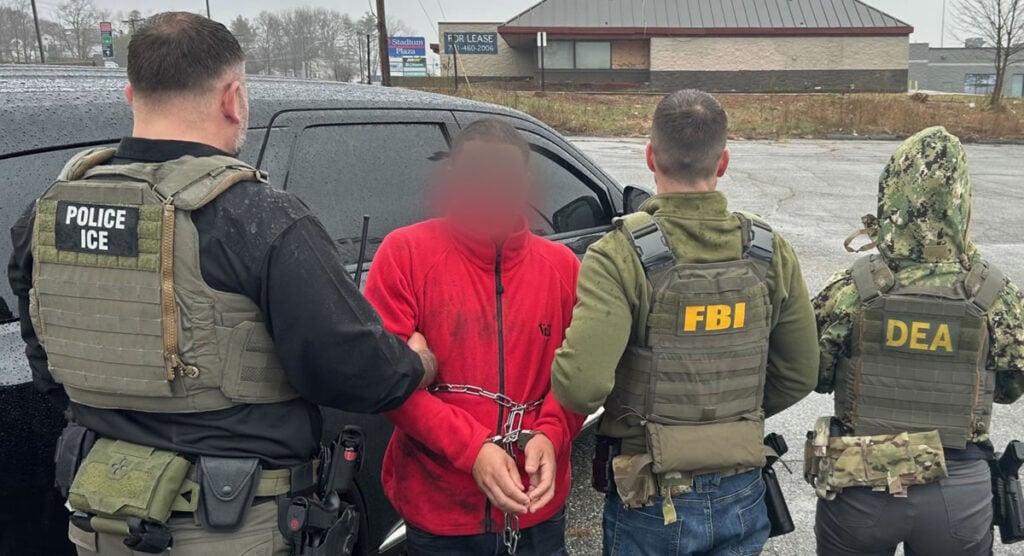TRENTON, NJ — New Jersey State Police officers have been instructed not to act on tens of thousands of newly added immigration warrants in a federal database, according to an internal memo from Colonel Patrick Callahan, citing potential violations of state law.
The order comes from New Jersey Governor Phil Murphy and New Jersey Attorney General Matt Platkin according to sources, via the state’s Immigrant Trust Directive.
Key Points
- Memo states over 27,000 “Outstanding Administrative Warrants” were added to NCIC database.
- NJ officers told not to take enforcement action solely based on these immigration warrants.
- Directive aligns with New Jersey Attorney General’s 2018 “Immigrant Trust Directive.”
The federal government recently added about 27,000 “Outstanding Administrative Warrants for Removal from the United States” to the FBI’s National Crime Information Center (NCIC), according to the memo addressed to all NJ State Police and public safety communications personnel.
“These Administrative Warrant messages appear in NCIC in a method that ALL members are to note they are NOT to be broadcast as ‘NCIC Hits,’” Callahan wrote. “NJDSP members are NOT permitted to contact ICE via the phone numbers provided.”
Memo enforces state’s immigration stance

The document reinforces the state’s 2018 Immigrant Trust Directive, which prohibits state, county, or local law enforcement from using resources to assist federal immigration enforcement unless a valid judicial warrant is issued. Administrative warrants, such as those recently uploaded, do not meet that threshold.
Callahan noted that while the Attorney General’s office distributed guidance to law enforcement agencies about these entries, state police may still encounter the warrants during routine checks. “Members of PSTS must pay particular attention to the wording of ‘Outstanding Administrative Warrant’ in the NCIC message,” the memo states.
State directive prohibits cooperation with ICE

Under the directive, New Jersey officers are not permitted to enforce civil immigration actions. The memo listed two specific prohibited actions: participating in civil immigration enforcement and enforcing administrative warrants issued by federal immigration authorities without a court order.
The memo emphasized that taking law enforcement action based solely on an administrative immigration warrant “would violate the Attorney General’s Immigration Trust Directive.”
NJ State Police reminded all officers that ICE-related warrants in NCIC do not authorize action under state law.
The entire memo:
A message from Colonel Patrick J. Callahan:
The federal government has updated NCIC to include approximately 27,000 “Outstanding Administrative Warrants for Removal from the United States.” I am addressing this message to ALL New Jersey State Police personnel, as well as to ALL Operational Dispatch Units and ALL Public Safety Telecommunicators.
A sample of how these Administrative Warrant messages appear in NCIC is attached. ALL members must be aware they are NOT to be broadcast as “NCIC Hits,” which would lead our members to believe they are required to arrest the subject. As the Attorney General’s Immigrant Trust Directive outlines, we are NOT to arrest subjects on the “Outstanding Administrative Warrant” entries, even if no other entries are provided. Also, upon receiving notification of an “Outstanding Administrative Warrant,” NJSP members are NOT permitted to contact ICE via the phone numbers provided.
The Attorney General’s office distributed additional guidance on Administrative Warrants a few months ago, but that was before the multitudes of Administrative Warrants entered into NCIC this week. I want to ensure clear and complete coordination of our personnel, including PSTS, who may encounter situations where these Administrative Warrants are identified.
Members of PSTS must pay particular attention to the wording of “Outstanding Administrative Warrant” in the NCIC message so they adhere to the Attorney General’s Directive 2018-6, which states the following:
“No state, county, or local law enforcement agency or official shall provide the following assistance to federal immigration authorities when the sole purpose of that assistance is to enforce federal civil immigration law:
- ‘Participating in civil immigration enforcement operations.’
- ‘Under federal and state law, local law enforcement agencies are not required to enforce civil, administrative warrants or detainers issued by federal immigration officers rather than federal or state judges.’”
Taking law enforcement action by arresting a subject based solely on an “Outstanding Administrative Warrant” would violate the Attorney General’s Immigration Trust Directive referenced above.
